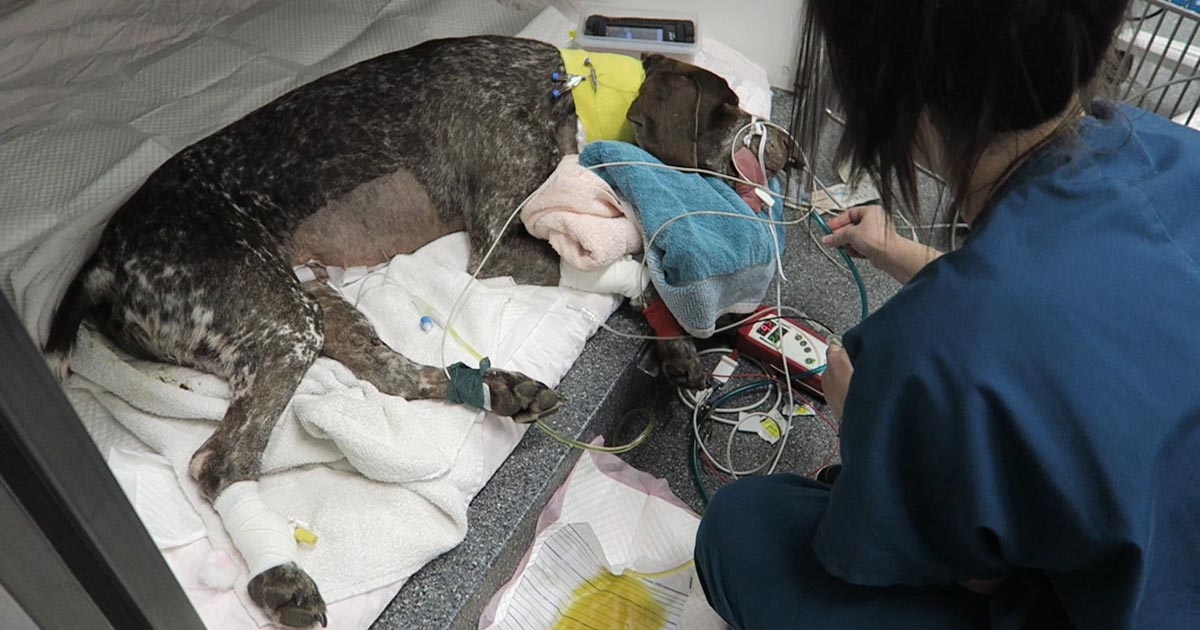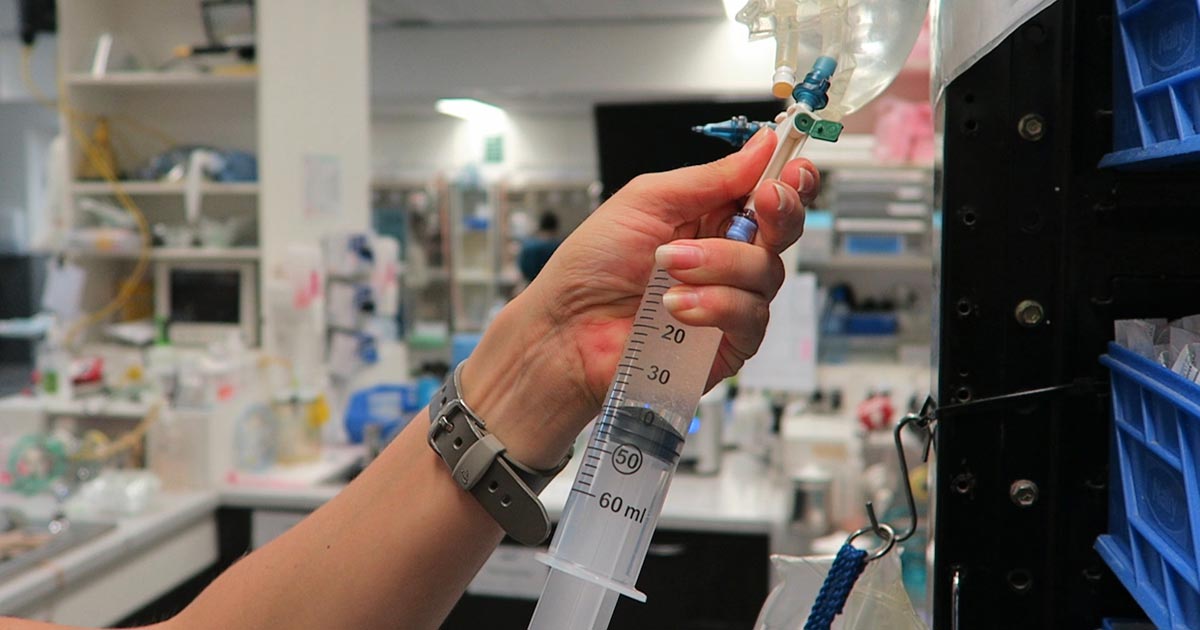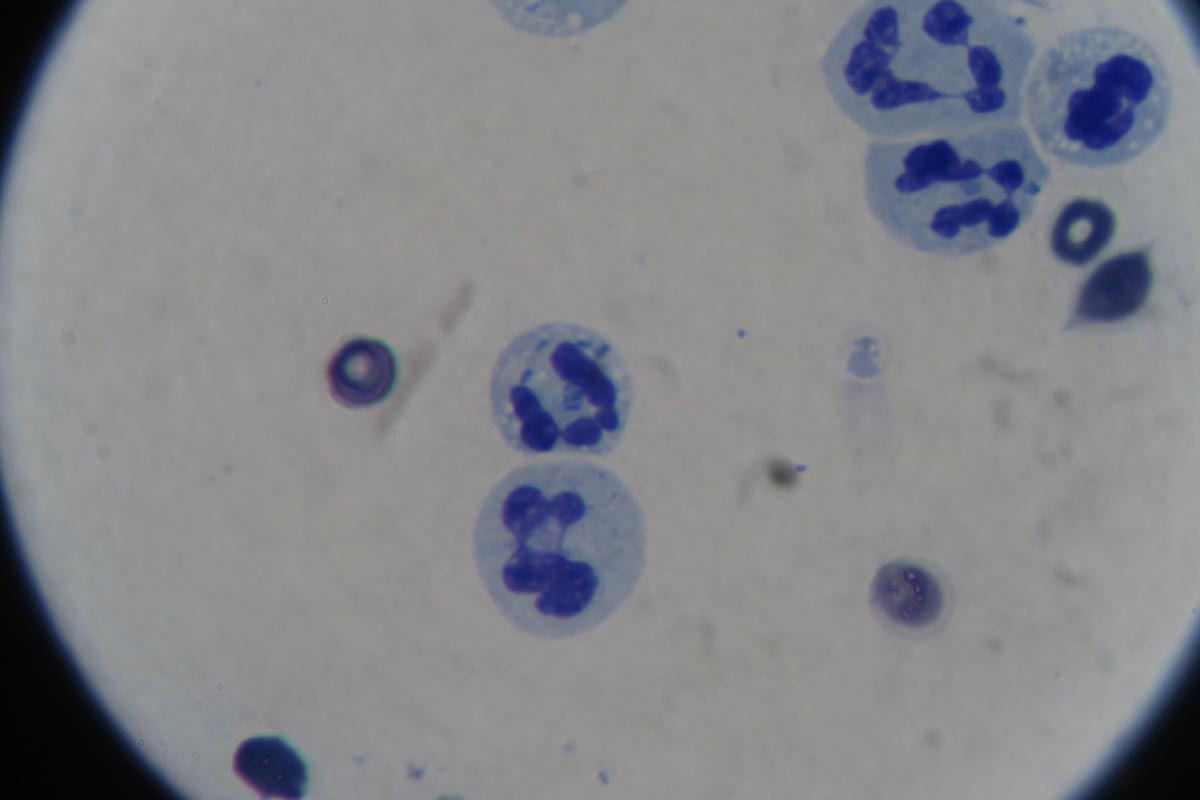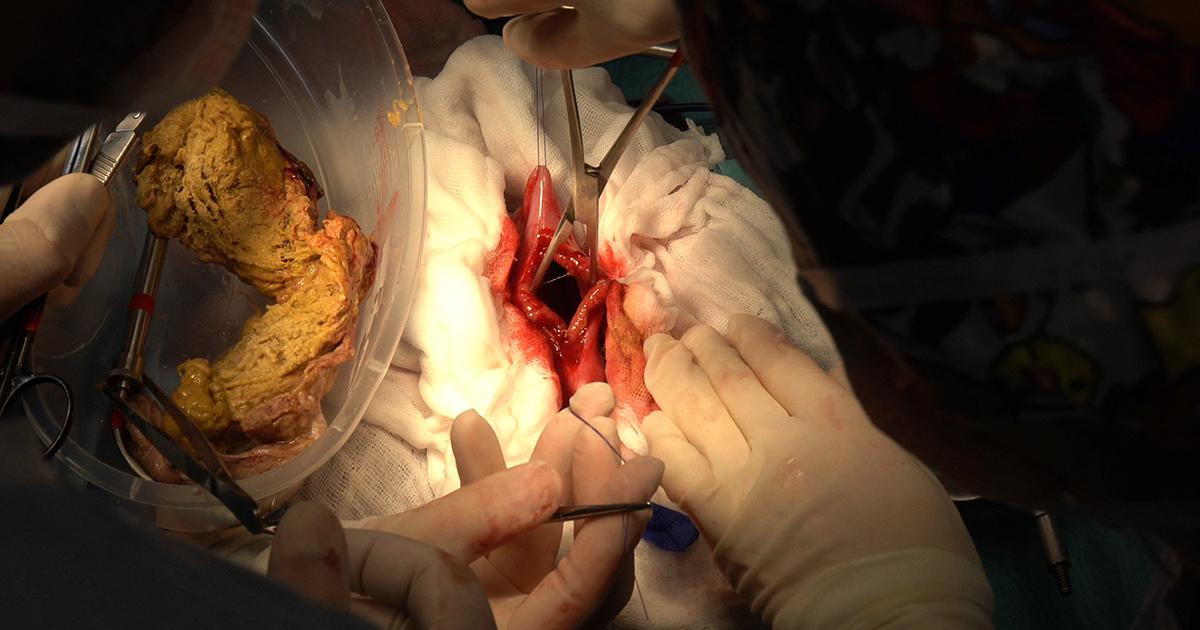Tag: Lactate
-

Focus on GDV, part 4: the recovery
—
by
Postoperatively, gastric dilatation-volvulus (GDV) patients remain in our intensive care unit for at least two to three days. Monitoring includes standard general physical examination parameters, invasive arterial blood pressures, ECG, urine output via urinary catheter and pain scoring. I repeat PCV/total protein, lactate, blood gas and activated clotting times (ACT) immediately postoperatively and then every…
-

Focus on GDV, part 1: resuscitation
—
by
Last month we covered a bit of pathophysiology, presenting pathophysiology, presenting clinical signs and the radiographic diagnosis of gastric dilatation-volvulus (GDV). Now we cover the three things you need to do as soon as a suspected case is presented: IV fluid resuscitation decompression of the stomach pain relief Depending on the number of staff you…
-

Making sense of effusions (part 1): is your patient septic?
—
by
Interpreting effusion samples can be confusing, so try to think of effusions as if you were collecting a blood sample. Many of the in-clinic diagnostic tests that apply to blood samples also apply to effusions, such as: PCV/total protein smears glucose lactate potassium creatinine bilirubin It’s not enough to only check the protein concentration of…
-

Linear foreign bodies, part 3: should YOU take it to surgery?
—
by
In the previous post we covered what to look out for on ultrasound when assessing for a linear foreign body. Now we discuss the things you should consider before deciding to take the patient to surgery. Read the following statements and answer the questions – either yes or no… Linear foreign body surgeries can be…
-

AFAST, part 2
—
by
Part one of this series looked at how to perform an abdominal focused assessment with sonography for trauma (AFAST) – this week looks at how to interpret abdominal fluid scores (AFS) in a clinical setting. To recap – the score is out of a possible 4, with each site allocated a 0 or 1 based…
-

The beginning of the end of vet school
—
by
As regular readers of this blog may have noticed, I was a little apprehensive about starting my final year at veterinary school… Having already been in the small animal hospital for two days, we finally received our results – confirming I and many of my fellow classmates had passed our exams and could now wear…